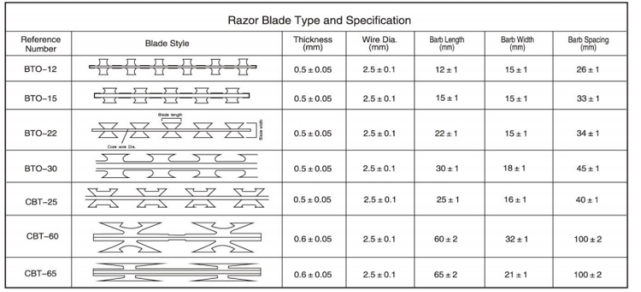Durable and Versatile Chicken Wire Fencing for Your Garden and Poultry Needs
Understanding Chicken Mesh Fence A Comprehensive Guide
When it comes to farming and keeping poultry, one of the most important considerations is providing a safe and secure environment for your chickens. A chicken mesh fence serves as an effective barrier that can help protect your flock from predators while ensuring they have ample space to roam. In this article, we will explore the significance of chicken mesh fencing, its various types, installation tips, and maintenance Best Practices.
What is Chicken Mesh Fence?
Chicken mesh fence, also known as poultry netting, is a type of fencing specially designed to contain chickens and other small animals. It is typically made from galvanized wire or stainless steel, ensuring durability against the elements and resistance to rust. The mesh design features small openings that prevent chickens from escaping while also deterring potential predators such as raccoons, foxes, and hawks.
Benefits of Chicken Mesh Fencing
1. Predator Protection One of the primary reasons for installing a chicken mesh fence is to safeguard your chickens from predators. The small openings in the mesh restrict entry for most animals while allowing your chickens the freedom to enjoy their surroundings.
2. Containment A chicken mesh fence keeps your flock contained, preventing them from wandering off into unwanted territory or becoming lost. This is especially crucial if you live near busy roads or areas with possible dangers.
3. Ventilation and Visibility Unlike solid fencing, chicken mesh fencing allows for better airflow and visibility. This is beneficial for chickens as they thrive in environments with good ventilation, which helps reduce the risk of respiratory problems.
4. Easy to Install Chicken mesh fencing is relatively easy to install, even for those who may not have extensive DIY experience. With some basic tools and a little guidance, you can create an enclosure that meets your needs.
Types of Chicken Mesh Fencing
There are various types of chicken mesh fences available, each catering to different needs
1. Hexagonal Wire Fencing This type features a hexagonal pattern and is commonly used due to its strength and flexibility. It is effective at keeping chickens in while preventing larger predators from getting through.
2. Welded Wire Fencing This option consists of welded wire sections, providing a sturdy and long-lasting barrier. Welded fences are more expensive but offer enhanced strength and security.
3. Electrified Fencing For those in areas with a significant predator presence, electrified fencing can be an effective solution. This type typically combines chicken mesh with an electric wire, deterring intruders by delivering a mild shock.
chicken mesh fence

Installation Tips
When installing a chicken mesh fence, consider the following tips to ensure its effectiveness
1. Choose the Right Height A standard height for chicken fencing ranges from 4 to 6 feet. Ensure it is tall enough to prevent chickens from hopping over and to deter larger animals.
2. Bury the Bottom Edge To prevent predators like foxes from digging under the fence, bury the bottom of the fence several inches into the ground or bend it outward at the bottom.
3. Secure the Corners Use wooden posts or metal stakes to secure the corners of your fence. Proper tension will ensure that the mesh remains taut and prevents sagging over time.
4. Check for Damages Regularly inspect your chicken mesh fence for any signs of wear, tear, or damage. Addressing issues promptly will ensure maximum protection for your flock.
Maintenance Best Practices
Maintaining your chicken mesh fence is vital for its longevity and effectiveness. Here are some best practices to follow
- Regular Cleaning Remove debris and ensure that the area around the fence is clear to allow for better visibility and airflow.
- Repair Damages Promptly If you notice any holes or worn-out areas, repair them immediately to prevent any potential escapes or breaches.
- Apply Rust-Resistant Coatings If your mesh is galvanized, the protection should last quite a while. However, applying a rust-resistant coating can extend its lifespan, especially in humid environments.
Conclusion
A chicken mesh fence is an essential component of raising healthy and happy chickens. By understanding the various types available, following installation tips, and keeping up with maintenance, you can create a safe haven for your feathered friends. This ultimately contributes to their well-being and protects your investment in poultry farming. Whether for personal enjoyment or commercial purposes, investing time and effort into a quality chicken mesh fence is a decision you'll appreciate for years to come.
-
Space-Saving Chain Fence Hacks Vertical Gardening with Cyclone MeshNewsJul.16,2025
-
Innovations in Iron Nail Wire Production for Modern ConstructionNewsJul.16,2025
-
Creative Uses of Wire Netting Fence in Modern Landscape DesignNewsJul.16,2025
-
Barbed Wire Fence Innovations in Anti-Climb TechnologyNewsJul.16,2025
-
Architectural Uses of Umbrella Nails for Aesthetic Roof DesignsNewsJul.16,2025
-
Architectural Uses of Razor Barbed Wire in Secure Urban DesignNewsJul.16,2025




